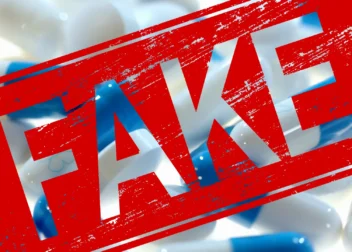Syrup samples of 2 pharma companies in Tamil Nadu, Gujarat flagged to be spurious
Source: India Today
Samples of syrups manufactured by two pharmaceutical companies based in Gujarat and Tamil Nadu have been found to have contaminants ethylene glycol and diethylene glycol, which were earlier detected in some syrups that were allegedly linked to deaths in the Gambia, Uzbekistan and Cameroon since last year, officials said.
These are among 48 drugs, samples of which were declared as “not of standard quality” and “spurious” by the Central Drugs Standard Control Organisation (CDSCO), out of a total of 1,166 samples tested in August.
Samples from a batch of cough syrup and another batch of anti-allergy syrup manufactured by Gujarat-based Norris Medicines Limited were found to be not of standard quality, containing 0.118 per cent ethylene glycol and 0.171 per cent ethylene glycol and 0.243 per cent diethylene glycol respectively.
Norris Medicines Ltd was asked to suspend production at its Ankleshwar plant a month ago, an official said.
Samples from three batches of COLD OUT syrup having paracetamol, phenylephrine, and chlorpheniramine and used for relieving nasal congestion, runny nose and fever, etc., manufactured by Tamil Nadu-based Fourrts (India) Laboratories, were also found to have both the contaminants — ethylene glycol 1.9 per cent and diethylene glycol 0.14 per cent.
The WHO in August had raised an alert over a batch of contaminated COLD OUT cough syrup supplied in Iraq and manufactured by the same company.
HG Koshia, Commissioner of Gujarat’s Foods and Drug Control Administration (FDCA), said Norris Medicines Ltd. was asked to suspend production at its Ankleshwar plant a month ago.
He said central and state government agencies have been on a mission for the last three months to ensure that India’s name in the pharma sector does not get tarnished on the world stage because of some companies.
Koshia said a team of the FDCA had inspected the plant in Ankleshwar industrial area of Bharuch district and found several critical and major compliance issues, which could lead to health issues among the public.
“Thus, we issued a show-cause notice and ordered the company to stop the production with immediate effect a month ago. The plant is still not functional,” Koshia said.
He added that the company will be given permission to restart production only after it complies with the norms as prescribed by the FDCA.
According to a CDSCO report, 1,166 samples were tested at various statutory laboratories authorised by it, of which 48 were found “not of standard quality” and spurious.



